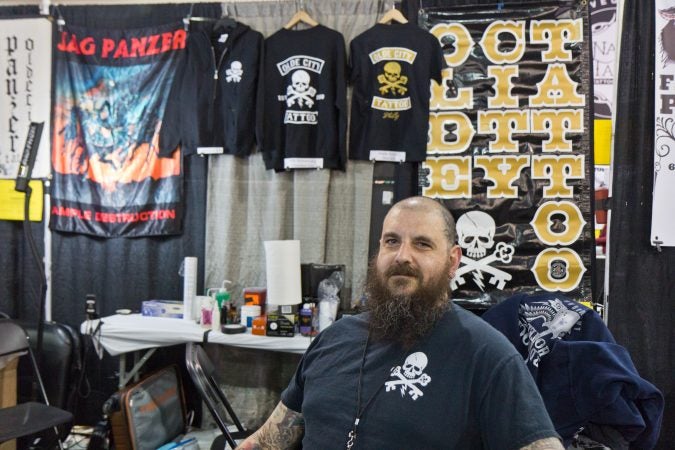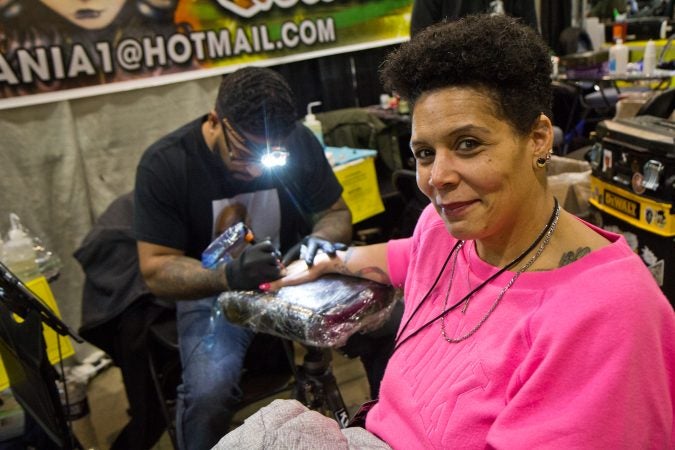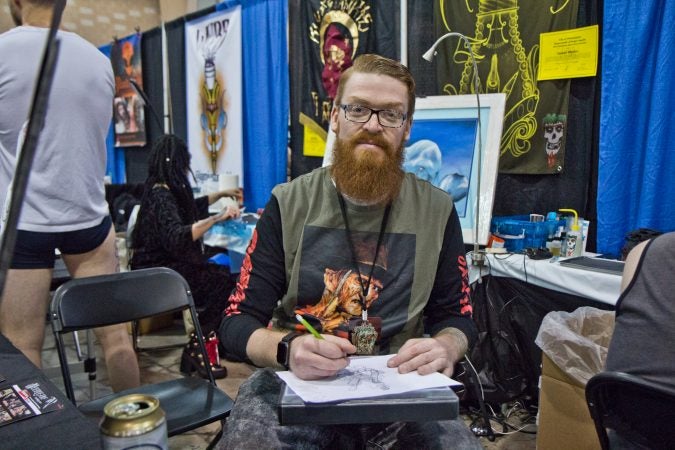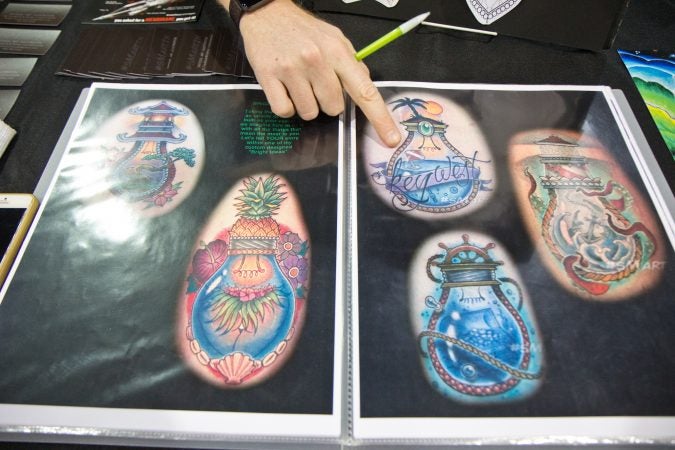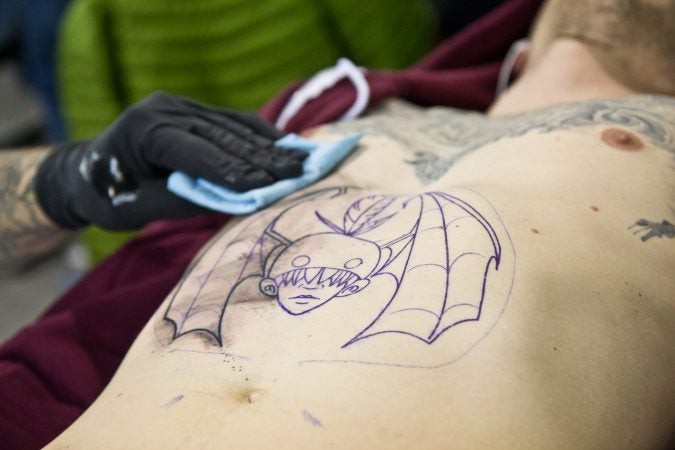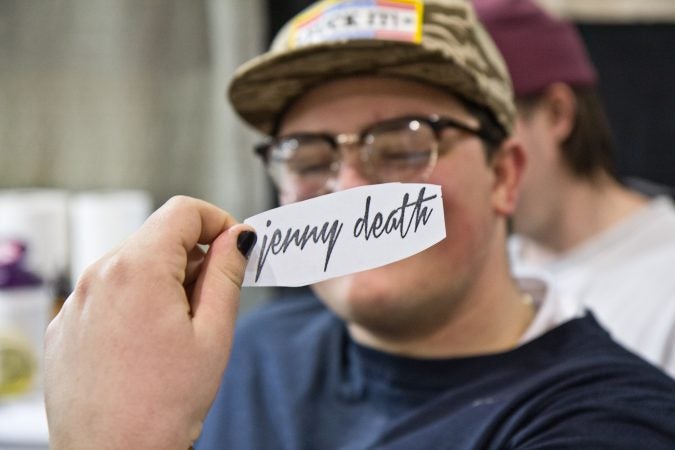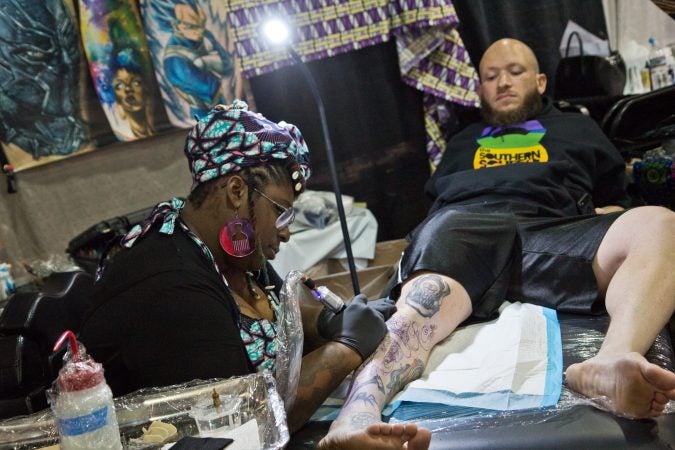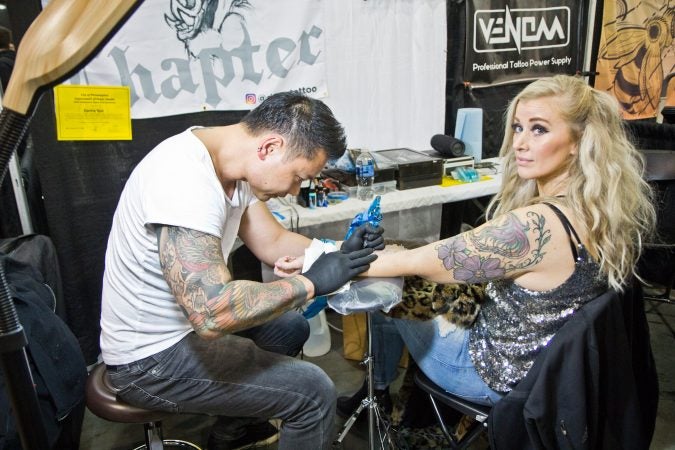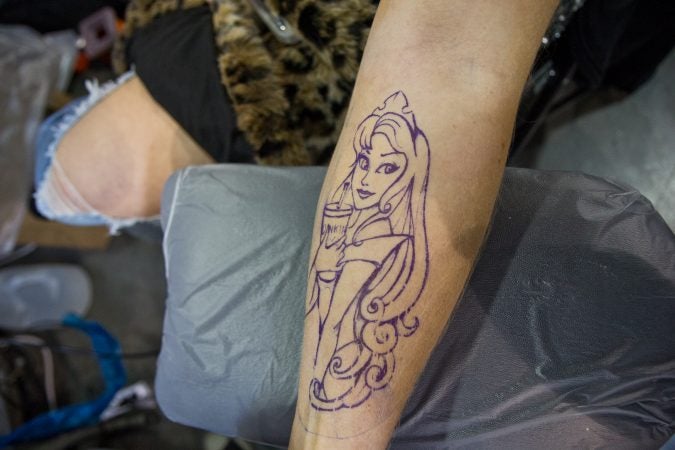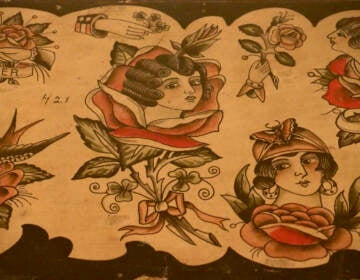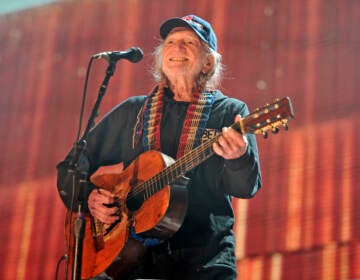Artists say Philly remains on top of the tattoo world, despite changing industry
Tattoo enthusiasts may be flooding the Convention Center this weekend, but Philly’s ink industry thrives year-round.
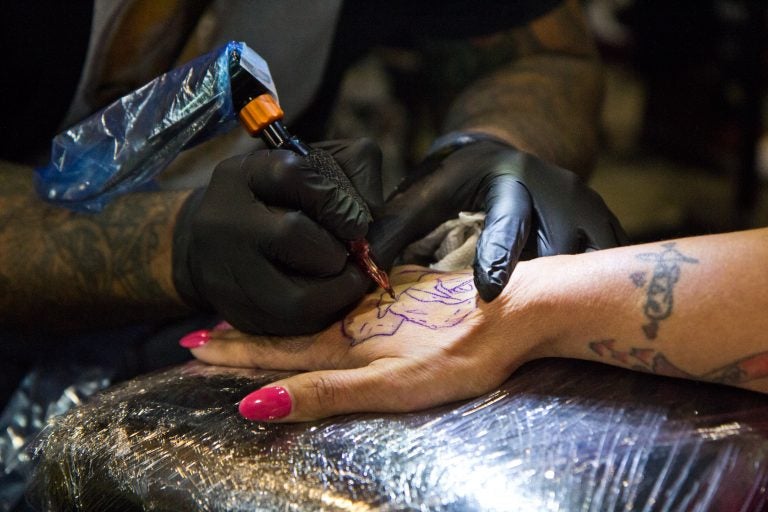
Felicia Vazquez gets a rose tattooed onto her hand by artist Ralph Fryer. (Kimberly Paynter/WHYY)
The 22nd annual Philadelphia Tattoo Arts Convention this weekend is just one sign of the city’s robust tattoo scene. Local artists say Philly’s tattoo industry has been growing and continues to grow — for better or worse.
“Philly’s always been one of the biggest tattoo cities in America,” said Jason Goldberg, a tattoo artist of almost 30 years and owner of Old City Tattoo. “In Philly, everyone has always been covered in tattoos.”
Fine, not everyone, but compared to other American cities, Goldberg maintains Philadelphians don’t bat an eye when they see white-collar employees with colorful tattoos peeking out of their dress shirts or sprawled across their hands.
Among tattoo artists like Steven Martin Jr., who used to make a living tattooing palm trees on tourists in the Florida Keys, Philly has a reputation of taking ink seriously.
“The projects [in Philly] are some things I could really sink my teeth into,” said Martin, who now works with Art Machine Productions. “They respect the art of it, not just the novelty.”
Still, there is something to be missed about the days before tattoo magazines and reality shows brought the trade into the limelight, said Goldberg. The times when tattoo shops weren’t a stone’s throw away from one another on South Street and aspiring artists had to work hard to perfect the craft.
Goldberg said back in the old days, there was no YouTube or online forums where artists could learn the nuances of certain tattoo machines, which needles worked best, and what colors to use.
Instead, artists had to get tatted all over by experienced artists, to see how they did it, and take notes.
“Back then, everything was a secret. It was better that way,” said Goldberg, letting out a laugh. He started tattooing in his teens. It was years before he caught the attention of an established tattoo artist in the city.
Goldberg was only half-joking about how the advent of the internet has made it so people “look at [tattooing] like any other job.”
His beef is mostly with an oversaturation of tattoo shops and artists in Philly and how there’s not enough business to go around. He admits the unlimited flow of information has brought about a whole new wave of artists.
The number of tattoo artists and businesses has grown in recent decades, the artists say, but it’s hard to tell by the number of body artist licenses issued alone. The city currently reports more than 400 people carry said license. The body artists license includes piercing and microblading, and tattoo artists are part of a transient community, according to a spokesman for the city’s Department of Public Health.
Though Martin posits a saturated market increases the chances of poor quality work, Goldberg argues it’s upped the ante.
“It’s more talented now,” he said. “I feel there’s so many artists, the bar has been raised 100 times.”
Long-time tattoo artists are making sure they keep pace both in their designs and business acumen.
“Not only do you have to be a good artist, but I feel like it’s a 50-50 split with me trying to market myself each day,” said Martin. “Because, at the end of the day, it doesn’t matter how good I am if I don’t make myself accessible to people.”
Tattoo conventions have a part to play in the changing industry.
Goldberg remembers when the conventions were small affairs with only several dozen booths. The annual gatherings that took place once or twice a year served as a place to network with top artists from across the globe, talk about the latest in inks, and most importantly, trade designs.
Conventions came before the internet and Instagram, so they worked as a way for people to swap ideas for tattoos.
“Everyone would draw their own designs, we would go to the convention, we would trade them,” Goldberg said. “You wanted the hot new shit on the wall.”
Nowadays, conventions like the one in Philly are so large, it’s overwhelming, said Goldberg, who prefers to stay within the confines of his shop’s booth and tattoo eager aficionados. Still, he acknowledged the power of the conventions. Just a handful of billboards with the word “tattoo” helps business, he said.
Artists like Martin have used the conventions to his advantage. He’ll often travel out of state when business is slow in Philly and set up his tools at a convention.
WHYY is your source for fact-based, in-depth journalism and information. As a nonprofit organization, we rely on financial support from readers like you. Please give today.


